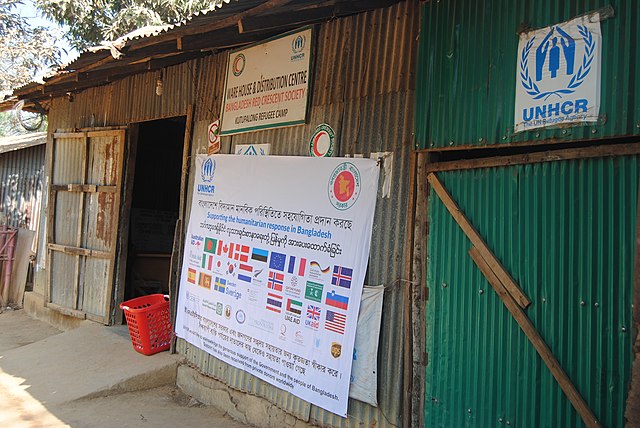Responsibility to protect: Who helps the refugees adrift at sea?

Rohingya Refugee Camp in Bangladesh
Carilyn Pointer – Two boats carrying an estimated 400 people are adrift in the Andaman Sea, off the coast of Myanmar. The boats are carrying refugees fleeing their home country, Myanmar. At this time, it is uncertain the condition of those on the boats, but food and water are likely running low if not already gone. The UN refugee agency is calling for help, but in these types of situations which country is responsible and how does where a person belong effect rescue efforts and aid?
The refugees are Rohingya which are an ethnic Muslim minority in Myanmar. As a minority they have been subject to the horrors of persecution and massacre within the last few years. Many people are fleeing to Bangladesh where they live in horrible conditions in refugee camps, while others attempt to flee by sea. The terms state and nation commonly get misused but can help explain what is happening to the Rohingya. States are commonly called countries and refer to the political entity that has sovereignty over a territory and a group of people. Nation on the other hand refers to groups with a shared identity due to common ancestry, culture, and history that fosters a sense of belonging and solidarity. A perfect overlap between a nation and state a (nation-state) is very rare. Instead, most states are comprised of a variety of nations. For example, in Myanmar the Rohingya people are their own nation but reside within the political state entity of Myanmar. While it is assumed that the state has responsibility to protect and offer the same freedoms to all citizens in their country, in this case and in many others that is not the reality. Instead, their minority identity can be a target and a justification for violence and persecution against them. This is done by emphasizing their differences from the majority and using their identity to separate them from the state and strip away their “citizenship” and therefore their rights to equal protection.
This along with war is one of the main reasons people flee their home state and seek refuge in other states. These people then for a time become “stateless” and have no geopolitical entity such as the state to protect them. So, when there are people are in the middle of the sea needing help, who is responsible for protecting them? Should it be other states? Or organizations such as the UN that are not associated with a singular state? And how does that help get deployed?
Photo Credit: Distributed via Creative Commons Attribution-Share Alike 4.0.

